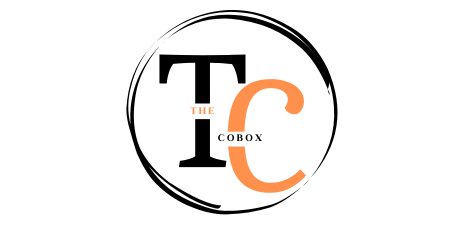In recent years, the conversation surrounding menstrual health has evolved significantly. Increasing awareness about environmental issues, personal health, and the need for sustainable solutions has brought plant-based menstrual products to the forefront. As more consumers are becoming aware of the environmental and health impacts of traditional menstrual products, the demand for eco-friendly, natural alternatives is growing.
What Are Plant-Based Menstrual Products?
Plant-based menstrual products refer to pads, tampons, and menstrual cups that are made primarily from organic or plant-derived materials. These products often include materials like organic cotton, bamboo, hemp, and other biodegradable substances.
The key differentiator between plant-based products and traditional alternatives lies in their materials—plant-based products avoid synthetic fibers like polyester, rayon, and plastics, which are common in conventional menstrual items.
Organic Cotton vs. Conventional Cotton
A significant difference between plant-based and conventional menstrual products lies in the type of cotton used. Organic cotton is grown without synthetic pesticides or fertilizers, making it a much safer and environmentally-friendly option.
The growing demand for organic cotton in menstrual care products is a testament to consumers’ increasing concerns over chemical exposure during menstruation. Organic cotton is also softer, more breathable, and less irritating to sensitive skin.
A Note on Plant-Based Movement
The plant-based movement extends beyond just food; it encompasses lifestyle choices that emphasize using natural materials and minimizing harm to the planet. This has influenced various sectors, including fashion, cosmetics, and now, menstrual health.
The growing demand for transparency and ethical sourcing has propelled brands to innovate in ways that resonate with eco-conscious consumers.
How Supporting Ethical Practices plays a role?
By opting for menstrual products, which are based on plants you often support companies that prioritize ethical sourcing and sustainable practices. Many brands in this space focus on transparency, ensuring that their materials are sourced responsibly and that their manufacturing processes minimize environmental impact.
Supporting these businesses not only promotes sustainability but also encourages a more ethical industry overall.
Accessibility and Variety
The market for menstrual products, which is based on plants, has expanded significantly, providing a variety of options to suit different preferences and needs. From organic cotton pads and biodegradable tampons to menstrual cups and period panties, there’s something for everyone. This growing variety makes it easier for individuals to find the products that work best for them without compromising on their values.
Waste Reduction and Resource Conservation
One of the most compelling reasons to switch to menstrual products, which are based on plants, is their reduced environmental impact. Traditional menstrual products can take hundreds of years to decompose. In contrast, plant-based options are often compostable, significantly reducing landfill waste.
Products, which are based on plants, often require fewer resources to produce compared to their synthetic counterparts. For example, organic cotton farming employs practices that promote soil health and reduce water usage, contributing to sustainable agriculture.
A Note on Chemical-Free Production
Many conventional menstrual products are manufactured using toxic chemicals that can leach into the environment. Plant-based alternatives typically utilize fewer harmful substances, promoting a healthier ecosystem.
Both organic period products and menstrual Products, which are based on plants, prioritize health and environmental sustainability. They are aimed at reducing the ecological footprint associated with menstrual care, promoting safer options for users, and encouraging the use of natural materials.
Essentially, organic period products can fall under the umbrella of products, which are based on plants but not all products, which are based on plants are organic.
The Cost Factor
Initial Investment vs. Long-Term Savings
While plant-based menstrual products may have a higher upfront cost compared to traditional options, they often prove to be more economical in the long run. Reusable items like menstrual cups and period underwear can drastically reduce monthly expenses, making them a wise investment.
Brand Comparisons
When considering a switch, it’s essential to compare brands. Some companies offer subscription services, which can save time and money, while others provide bulk purchasing options to reduce costs further.
Innovative Designs and Functionality
Products, which are based on plants, are not just environmentally friendly; they also offer innovative designs that cater to comfort and functionality. Many brands focus on creating products that fit better, absorb more efficiently, and feel softer against the skin.
With options like reusable menstrual cups and organic cotton pads, there are now more choices than ever that combine sustainability with performance.
Empowering Change and Join the Movement
Making the switch to plant-based menstrual products is a powerful way to take control of your health and contribute to a more sustainable future. As more people become aware of the environmental and health impacts of traditional menstrual products, the demand for products, which is based on plants, continues to grow.
Choosing menstrual products , which is based on plants, is not just a personal decision; it’s a statement about what you value. By opting for sustainable options, you contribute to a larger movement advocating for environmental responsibility and women’s health. This choice can inspire others to rethink their own habits, leading to broader change in the industry.
Conclusion
Plant-based menstrual products are undoubtedly the future of period care, offering an environmentally friendly, health-conscious, and cost-effective alternative to conventional products. As more people become aware of the importance of sustainable practices and non-toxic materials, the demand for plant-based products will continue to rise. The environmental benefits of reducing plastic waste, along with the health advantages of using chemical-free products, make plant-based options the ideal choice for modern women seeking comfort and sustainability.











